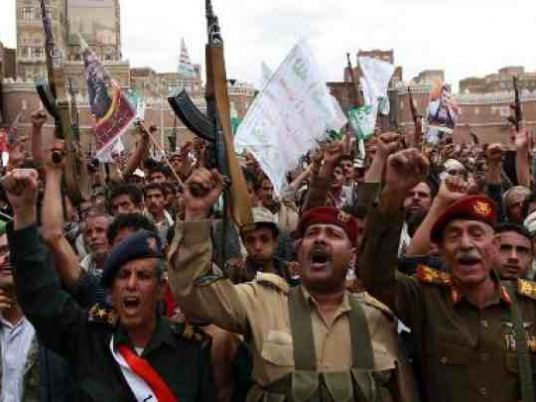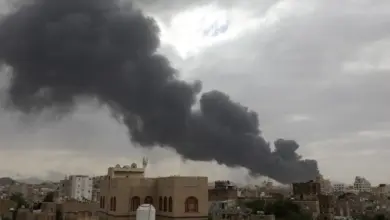
Although Mahmoud Mostafa, an Egyptian student who has recently returned from Yemen, left the country before the military campaign against the Houthis began, he still suffers from anxiety, as he continues to hear the sound of military aircraft in the sky of Sanaa, long after returned to Cairo.
"My father, mother, and two siblings are there. Every day I hear the sound of explosions near their home in the Yemeni capital when we talk on the phone, and my siblings cry out of fear while calling for help, after they lost all hope for escape," Mostafa said.
Mostafa was forced to leave the Faculty of Information at Sanaa University, after the security situation deteriorated with the Houthi takeover of the Yemeni capital.
He came back to Cairo three months ago to enroll in Cairo University, as the Supreme Council of Egyptian Universities announced facilitating the enrolment procedures, and his family were supposed to follow him.
Mostafa's father, the managing director of a state-owned hospital on the outskirts of Sanaa, says: "We are dying here everyday. The area surrounding our house in Sanaa is mountainous, and this is where arms and ammunition is stored."
"Explosions often reach the windows of our home. To make matters worse, after Egypt announced its participation in the war, Yemenis started to mistreat Egyptians," he added.
After a number of states, notably Saudi Arabia, Bahrain, Kuwait, Qatar, and Egypt declared their participation in airstrikes against Houthi strongholds, the residents started to hear missiles on a daily basis, according to Hatem Mostafa.
On the first day, the attacks started at 11 pm and ended before dawn. The second day, they began at 7 pm and lasted until 7 am. The bombing escalated and became more intense at night, especially against the ammunition storage sites located near Mostafa's house, putting his family at risk of death.
Before the attacks, the embassies of Saudi Arabia, the UAE and Qatar evacuated their nationals, while the Egyptian embassy closed its doors in the face of its citizens in Yemen, according to Mostafa.
"We don't leave home at all because this would put our lives at risk. I am imprisoned along with my wife and son. We can sleep only for a few minutes at a time, only to wake up to the sound of bombs," said Mahmoud Lotfy, an Egyptian professor at Sanaa University, who has been been in Yemen for nine years.
All countries, including the Philippines, Sudan, Pakistan and Ethiopia, evacuated their nationals, Lotfy says.
The Egyptian embassy staff left Sanaa. When we communicated with the Foreign Ministry in Cairo, we were told that we should travel to the Sultanate of Oman, from where we could fly back to Egypt, Lotfy adds.
However, it takes 25 hours by car to reach Oman, and any moving object on the ground could be targeted by the bombings, he points out.
Edited translation from Al-Masry Al-Youm



